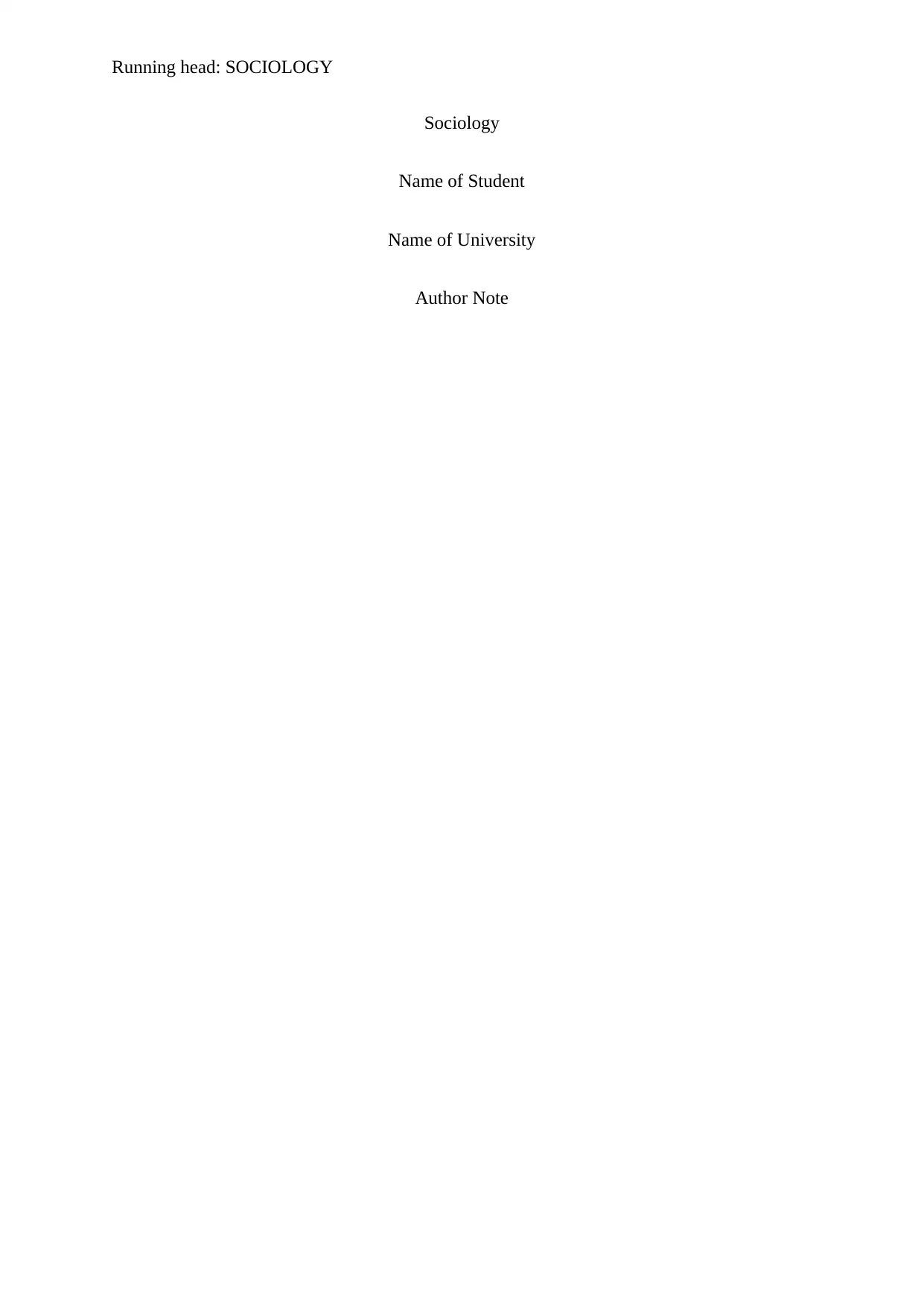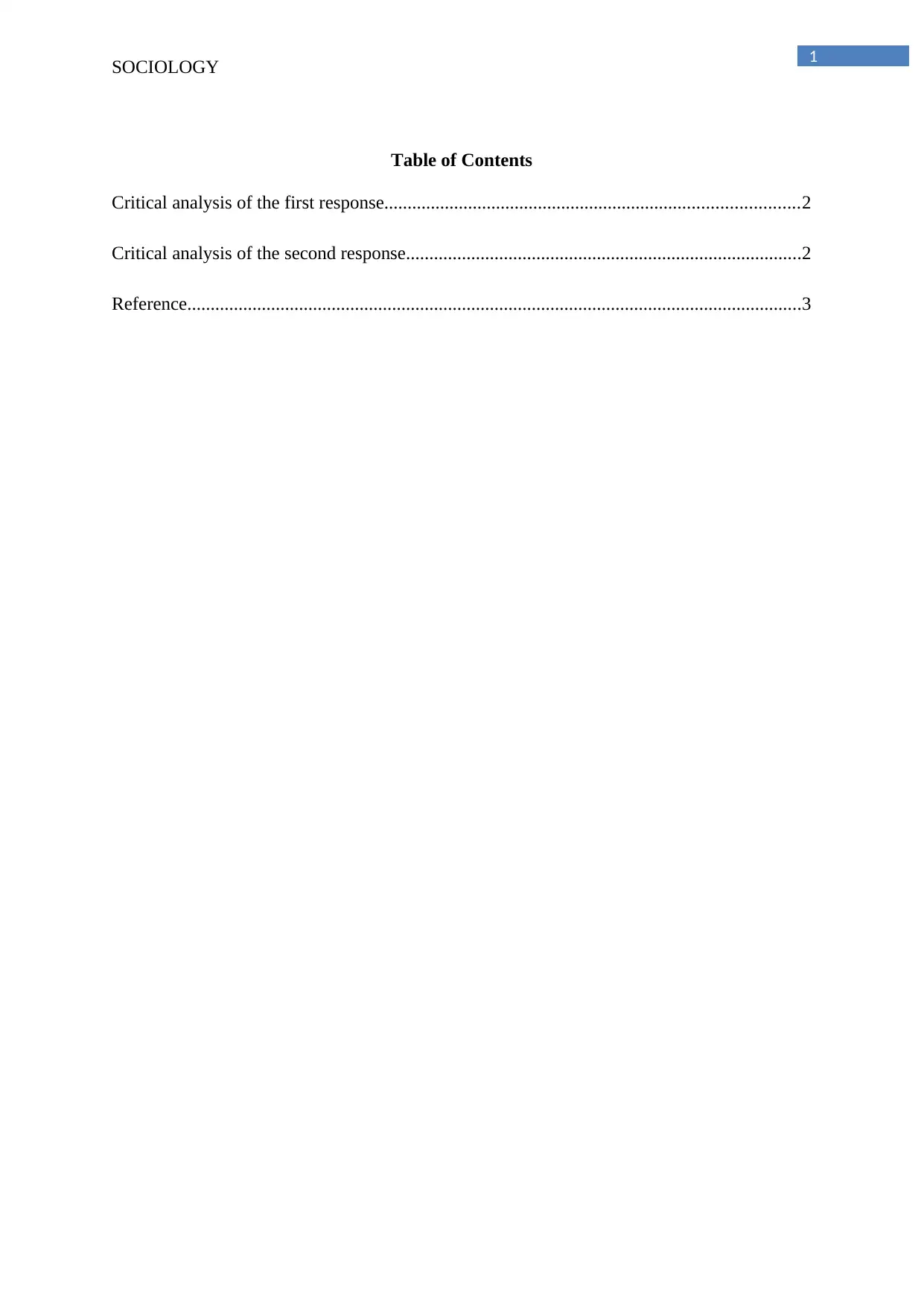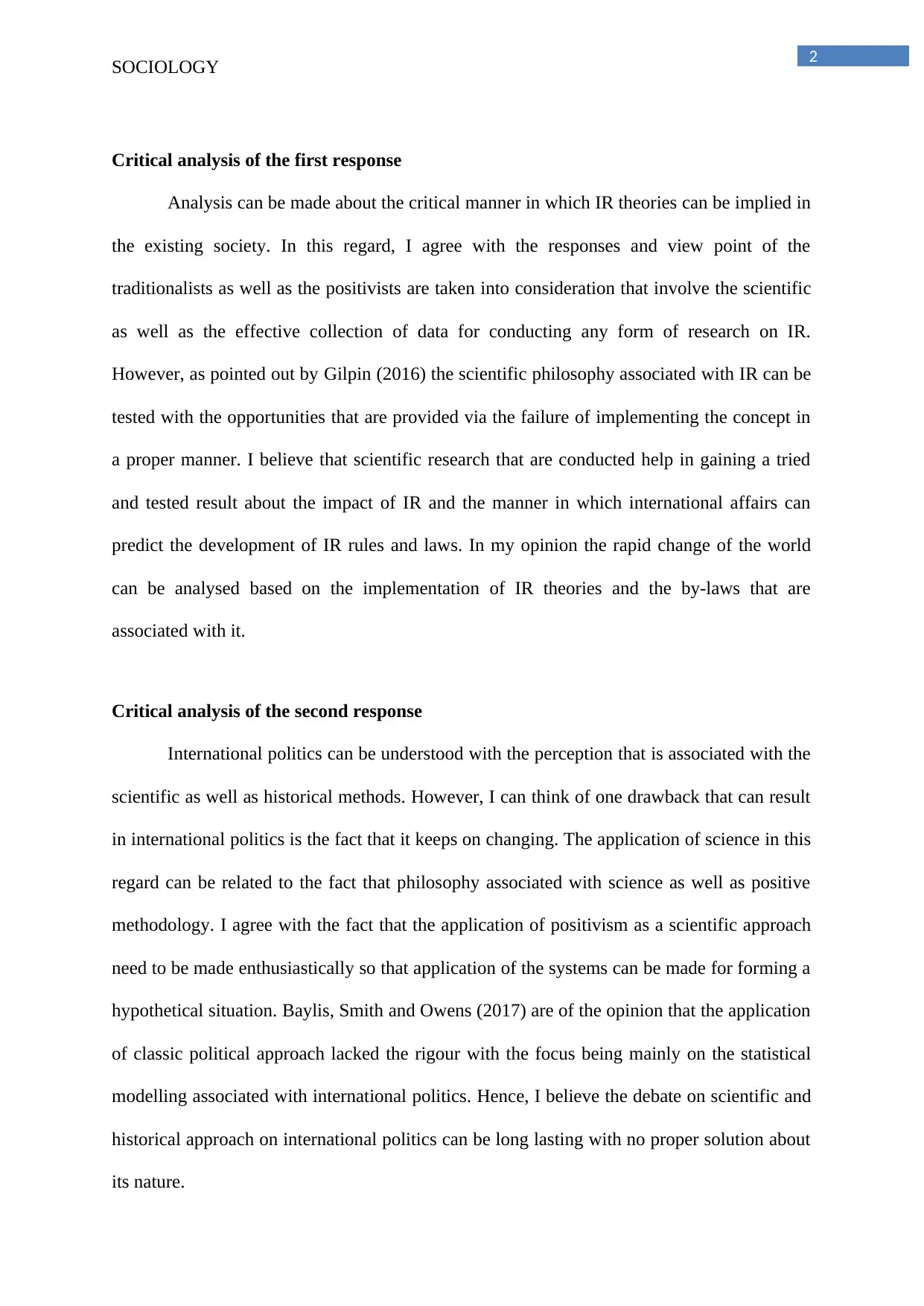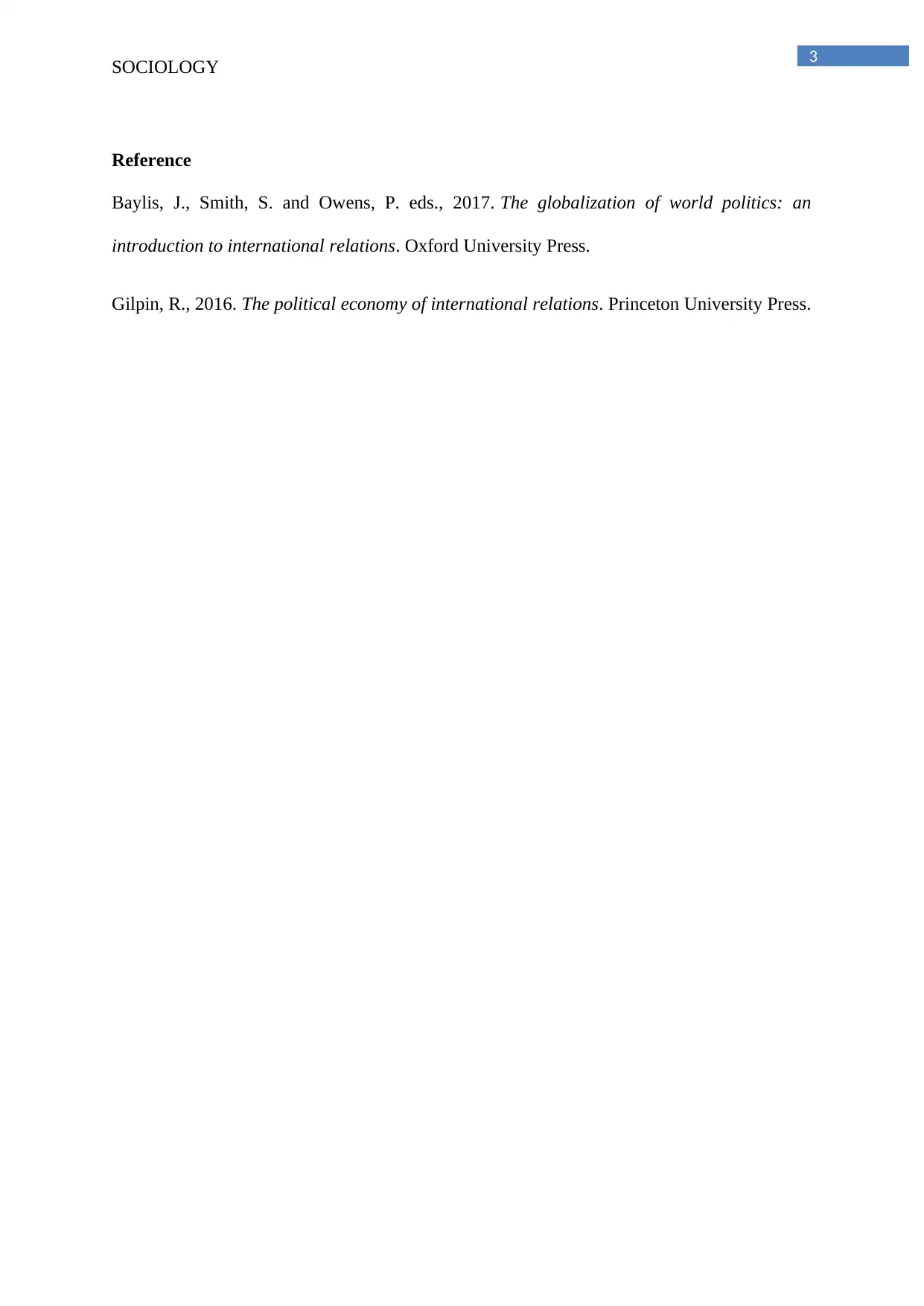Sociology Essay: Critical Analysis of International Relations Theories
VerifiedAdded on 2023/04/19
|4
|434
|288
Essay
AI Summary
This sociology essay provides a critical analysis of International Relations (IR) theories, examining both traditionalist and positivist viewpoints concerning the scientific study of international relations. It agrees with the use of scientific methods for researching IR, highlighting the importance of data collection and testing theories against real-world failures. The essay also analyzes the debate between scientific and historical approaches to international politics, acknowledging the ever-changing nature of international politics and the potential drawbacks of relying solely on scientific philosophy. The analysis references the application of positivism and the limitations of classical political approaches, emphasizing the ongoing debate regarding the nature of international politics. The essay concludes by referencing key works in the field, underscoring the complexities and continuous evolution of IR theories.
1 out of 4







![[object Object]](/_next/static/media/star-bottom.7253800d.svg)